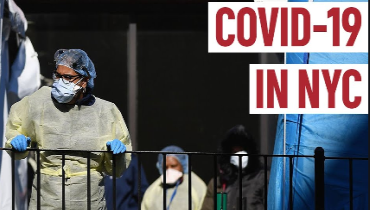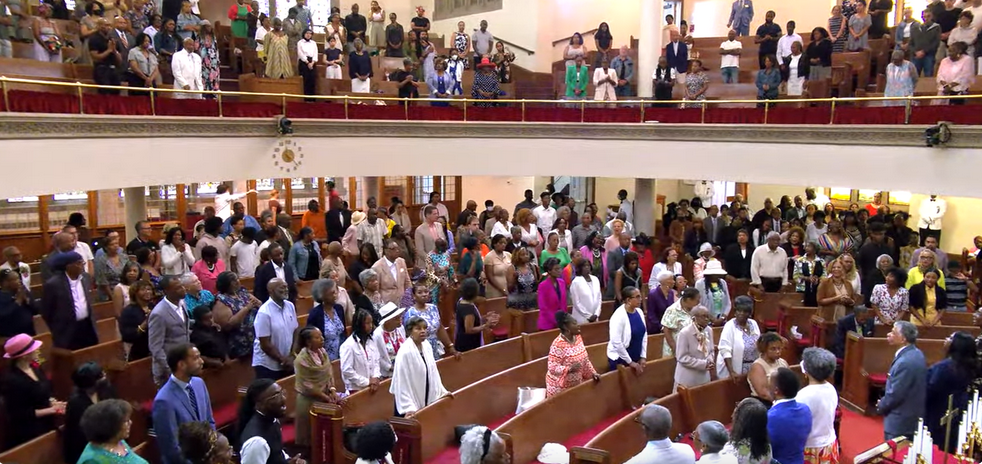[COVID-19\NY Assembly]
New York Assembly Speaker Carl Heastie: “These bills will help families and some of our most vulnerable populations weather the economic storm that the COVID crisis has brought.”
Photo: YouTube
New York Assembly Speaker Carl Heastie Friday announced that the Assembly has passed legislation to ensure vulnerable New Yorkers have the tools and resources they need to navigate the COVID-19 pandemic, and to foster trust and accurately trace the virus in our communities.
“New Yorkers are being stretched and strained in unprecedented ways by the continuing COVID-19 pandemic,” Speaker Heastie said. “These bills will help families and some of our most vulnerable populations weather the economic storm that the COVID crisis has brought, as well as allow us to safely and accurately implement contact tracing in our communities. The Assembly Majority will continue working to find solutions to help New Yorkers through the pandemic.”
Protecting Vulnerable Populations
The COVID-19 pandemic has been devastating economically, but it has struck especially hard for families and youths that were already struggling to get by. Legislation passed this week would provide an alternate way for young adults between 18 and 21 who were previously in the foster care system to re-enter the system without submitting a motion to family court during a state of emergency. Under current law, these young adults are able to return to foster care under the approval of family court if they have no other alternative or are participating in a vocational or educational program. This bill would authorize former foster care youth to request the commissioner of the local social services district to return to foster care during the COVID-19 crisis where the courts can be severely restricted (A.10581-B, Wright).
“Now more than ever, we need to ensure that young New Yorkers that were in our foster care system have a support system that works for them,” Assemblymember Tremaine Wright said. “During this crisis, it is important that we eliminate barriers to these young people getting the help, care and stability that they need.”
Millions of New Yorkers rely on programs like the Supplemental Nutrition Assistance Program (SNAP), including many populations that are at higher risk to COVID-19 like seniors. Passed this week was a bill that would allow the use of SNAP benefits to purchase groceries online, codifying a 2019 pilot program from the U.S. Department of Agriculture. Allowing these recipients to utilize online grocery delivery services is a safe alternative in a time when people are encouraged to stay home (A.10673, Hevesi).
“At a time when millions of New Yorkers have filed for unemployment and so many families are already struggling, it is critical that we remove barriers to receiving and using necessary benefits,” Assemblymember Andrew Hevesi said. “This bill will help our most vulnerable populations get through this pandemic and have the ability to put food on the table for their families.”
Testing and Tracing
Legislation passed this week would ensure that every New Yorker, including those that are uninsured, is able to receive a COVID-19 test. The bill would require that those who are uninsured are not charged for COVID testing, and that data gathered as a result is kept confidential (A.10494-A, Gottfried).
“Contact tracing for COVID-19 is critically important for public health, but it only works if people participate,” said Assembly Health Committee Chair Richard N. Gottfried. “That means removing financial barriers to testing, as well as assuring New Yorkers that their information will only be used for public health purposes, not as a back door for law enforcement or immigration authorities or a potential way for a third-party contractor to amass personal data for commercial use.”
Contact tracing is a very important aspect of the reopening of New York State and the economy. Legislation passed this week would help foster trust between contact tracers and the communities they are reaching out to. One bill would provide for the confidentiality of tracing information from the identification of those who come in contact with a person with a confirmed or probable diagnosis of COVID-19 (A.10500-C, Gottfried). Another bill would require that COVID-19 tracers be representative of the cultural and linguistic diversity of the communities in which they serve to the greatest extent possible. Encouraging this diversity will lead to more employment opportunities and enhance the efficiency of the contact tracing program (A.10567-A, Jean-Pierre).
“We have seen that the COVID-19 pandemic has had a disproportionate impact on minority communities, and it is critical that efforts to trace the virus are accurate within these groups,” Assemblymember Kimberly Jean-Pierre said. “Hiring contact tracers that reflect the languages and cultures they are working with will help our state be more successful in tracking COVID-19 in all of our communities and keeping New Yorkers healthy.”
Also passed this week is legislation that would require employers to notify employees if they come into contact with another employee that has been diagnosed with COVID-19. The employer would be prohibited from releasing the name of the diagnosed employee (A.10353-A, Aubry).
“Our frontline workers have been out there every day risking their health to keep our country running, and now, more and more New Yorkers are returning to work. Requiring employers to notify their workers when someone they worked with has contracted COVID-19 is not just good practice, it is necessary for public health,” Assemblymember Jeffrion L. Aubry said. “This bill will help employees stay safe and healthy while protecting the privacy of those that become ill.”






